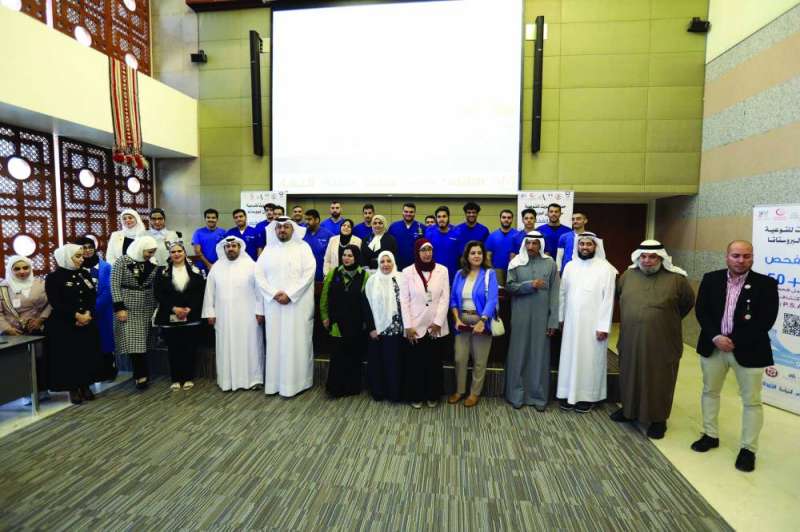The National Cancer Awareness Campaign (CAN) recently concluded its prostate cancer awareness initiative at the Bahra Hall of the Chamber of Commerce and Industry, with the theme “Get Screened.” During the event, Dr. Ahmed Al-Mujalham, a senior specialist in urology, laparoscopic surgery, minimally invasive surgery, and surgical robotics, shed light on the range of surgical options available for treating prostate cancer.
One of the key highlights of Dr. Al-Mujalham’s presentation was the innovation of robotic surgeries. He emphasized that these procedures are conducted through small surgical incisions, which offer several advantages. The use of robotic technology allows for precise movements and high-quality 3D imaging, enabling surgeons to perform operations with enhanced accuracy.
It is important to note that not all hospitals in Kuwait currently have access to surgical robots. However, Dr. Al-Mujalham expressed hope that this advanced technology would become more widely available across all healthcare institutions. The availability of robotic surgery would greatly enhance the quality of treatment services for patients, ensuring that they receive the best possible care.
While the focus of Dr. Al-Mujalham’s presentation was prostate cancer, he also emphasized that robotic technology has broader applications. It can be utilized in various surgical procedures involving the kidneys, liver, colon, and pancreas. The versatility of robotic surgery makes it a valuable tool for surgeons in different specialties, contributing to improved patient outcomes.
Since its introduction in 2005, robotic technology has been employed in approximately 5 million surgical operations worldwide. This staggering number underscores the growing recognition of its role in improving the accuracy of surgical interventions. The precise movements facilitated by surgical robots have led to reduced risks, shorter recovery times, and improved overall patient satisfaction.
The success of robotic surgery can be attributed to its ability to combine the expertise of the surgeon with the precision of the robotic system. Surgeons control the robotic arms and instruments, while the system provides enhanced visualization and dexterity. This collaborative approach ensures that patients receive the best possible surgical care, with minimal invasiveness and optimal outcomes.
In conclusion, the recent prostate cancer awareness initiative by the National Cancer Awareness Campaign highlighted the advancements in surgical options for treating prostate cancer. Robotic surgery, with its small incisions and high-quality imaging, offers precise movements and improved accuracy. While not yet available in all hospitals, the hope is that this technology will become more widely accessible, benefiting patients across Kuwait. Additionally, the versatility of robotic surgery extends beyond prostate cancer, encompassing various other surgical procedures. With its proven track record and global acceptance, robotic surgery is revolutionizing the field of surgical interventions and improving patient care worldwide.
Source: TimesKuwait







